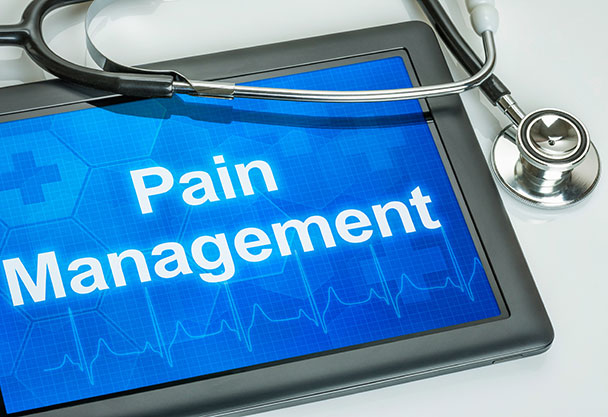An astonishing one-in-five US adults spend their day in pain. Though each person experiences pain differently and has varying degrees of discomfort, chronic pain often becomes so frequent and severe that it stops you from going to work, limits your functional ability, disrupts relationships and can cause significant disability. While pain is exceedingly common, it is challenging to diagnose since there is no established guideline to evaluate this problem. Diagnosing and treating the root cause of pain typically requires a specialist, who is specifically trained in all of the nuances of pain sources. When you desperately need pain relief and you don’t want surgery, then interventional pain management can play a huge role to relieve your pain. Interventional pain management is a field that specializes in relieving your pain by directly treating its source: the nerves sending the pain signals. You may be a candidate for pain management if you struggle with severe or long-lasting:
- Neck pain
- Back or spine pain
- Shoulder, hip, or knee pain
- Other types of joint pain
- Arthritis
- Osteoporosis
- Fractures
- Sports- or work-related injuries
- Fibromyalgia
- Sciatica
- Complex regional pain syndrome
- Nerve damage
- Bulging or ruptured discs
- Other causes of chronic pain
Chronic pain comes from many possible sources including inflammatory and autoimmune disorders. Inflammation contributes to most types of chronic pain, but inflammatory disorders specifically refer to infections and autoimmune disorders. Autoimmune diseases occur when your immune system mistakenly attacks healthy tissues. A few examples include Rheumatoid arthritis, Sjogren’s syndrome, and Lupus.
There is also musculoskeletal pain which arises from traumatic injuries, overuse injuries, and degenerative diseases affecting your muscles, ligaments, tendons, cartilage, and bones. You may have pain that affects one localized area, like a joint with osteoarthritis, or discomfort throughout a body region, such as chronic pelvic pain. Musculoskeletal conditions like fibromyalgia cause body wide aches and pains. Of all the different types of musculoskeletal pain, back pain is the most common and the top cause of disability. Chronic back pain often arises from conditions such as herniated discs, degenerative disc disease, and facet joint arthritis.
Neuropathic pain occurs any time a nerve is irritated, inflamed, or damaged. When the nerve responsible for your pain lies outside your brain and spinal cord, you have peripheral neuropathy. If your back condition pinches the spinal nerves, the condition is called radiculopathy. Damaged nerves cause localized pain at the site of the injury. They also transmit pain, tingling, and other
uncomfortable sensations along the nerve. As a result, a pinched nerve in your lower back (or neck) can send excruciating pain down your leg (or arm). An acute injury can also turn into chronic pain by affecting the nerves. This happens when pain from the injury changes the nerves, making them hypersensitive. As a result, they keep sending pain messages to your brain after the original condition heals and often in response to things that shouldn’t trigger pain signals. Any condition that affects your body can trigger receptors on sensory nerves. The nerves carry the message to your brain, causing the feeling of pain. The interventional treatments and medical management can ease your pain by blocking the nerve signals and preventing your brain from getting the pain message.
Pain is a subjective experience and varies widely from each individual. It is a personal experience and what may be mild pain to one person can feel severe and overwhelming to another. The same condition or diagnosis can require completely different kinds of care and sometimes even repeated treatment to see improvement. But acknowledging your individual experience is what we are trained to do at Integrative Pain & Spine Institute and we treat each patient individually. Our goal is to get you back to re-living life again!
Call us today to make an appointment for an initial consultation at 704-317-1440. All major insurances accepts and no referral needed!


